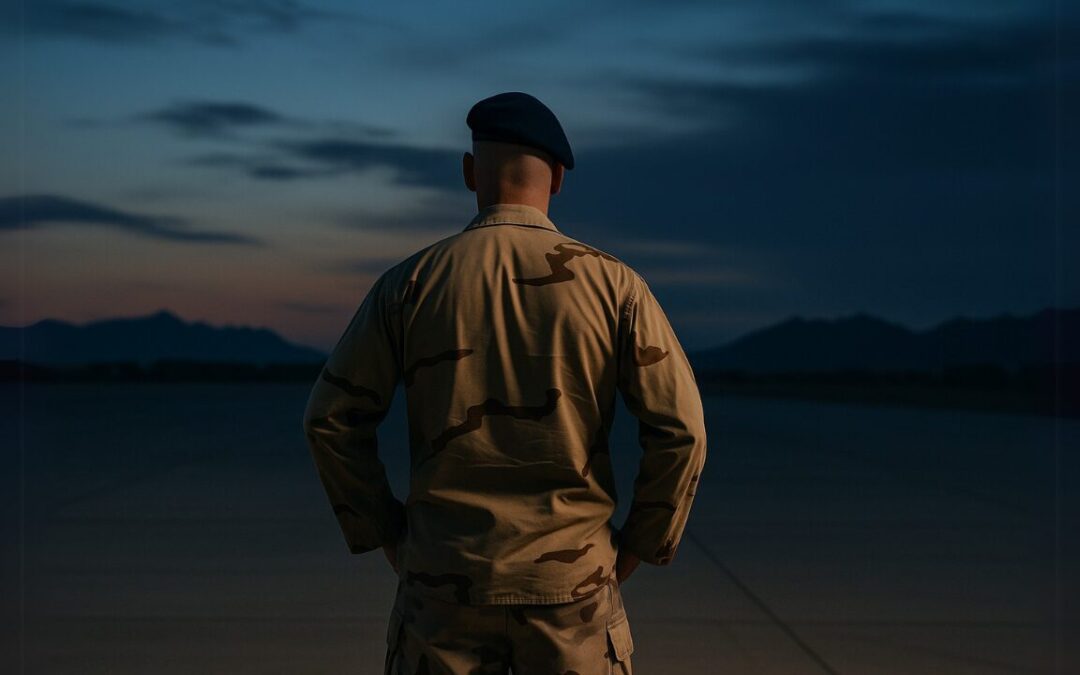There’s a difference between knowing you’re not ready—and realizing you never really were.
I remember the moment it hit me.
I had just been selected for promotion in the Air Force. That meant I’d passed the tests and earned the title of Staff Sergeant Select. I hadn’t even pinned on the new rank yet, but people started treating me like I had. Expectations shifted overnight.
And then I was chosen to lead a Security Forces team.
We were deploying from Colorado to Iraq. Before heading overseas, we traveled to Las Vegas for pre-deployment training. My squad had about nine people—slightly understrength, but functional. We’d be joining dozens of other similar teams from across the country to form a full squadron once we arrived downrange.
I was easily the youngest and least experienced squad leader among the broader deployment group. While I had already attended Airman Leadership School and had three combat zone deployments under my belt, I hadn’t put on my new rank yet, and nothing could’ve truly prepared me for what was coming.
Leading Before I Was Ready
I defaulted to what I thought leadership looked like.
Demanding. Loud. In charge.
That’s what I’d seen modeled growing up. People in charge bark orders. They yell. They get what they want by force or intimidation. So that’s what I did.
Until the moment I completely failed.
One of my team members didn’t have all the required insignia sewn onto his uniforms. He was issued four sets—but only one was ready. I was outside smoking when I found out. Another airman gave me the heads up, and just as I was reacting, the guy in question walked up.
And I let him have it.
I stood him at attention and tore into him. I yelled. I spit. Literally. I degraded him. When he instinctively wiped his face, I yelled at him again for moving. I never once asked why. Never gave him a chance to explain. I told him he had until morning to sew everything on himself with a needle and thread. Then I dismissed him and walked away feeling like I’d done something right.
It was one of the worst leadership moments of my life.
Always Ask Why
Later that night, I came outside again for another smoke and saw him sitting on the curb. He looked broken. From a distance, I thought I could see tears.
I walked over and finally asked the question I should’ve led with:
“Why didn’t you get your uniforms done before we left?”
He told me everything.
His life was unraveling. He had kids from a previous relationship. He was newly married and going through a separation. His car was being repossessed. He couldn’t afford the alterations. He wasn’t lazy or irresponsible—he was overwhelmed.
And the kicker? I had just come out of a similar season. I’d been divorced. Lost a house. Had a car repossessed. I knew what that pain felt like.
And still—I’d treated him like trash.
The Real Failure Happened Earlier
That’s when it hit me.
The mistake wasn’t just how I treated him that night.
The real failure happened long before we left Colorado.
If I’d been even a decent operational leader, I would’ve done bag drags and gear checks. I would’ve reviewed every uniform. I would’ve known my people. I would’ve asked better questions before we ever boarded a plane.
He should’ve never been on that deployment.
Not because he was weak. But because his life was falling apart—and no one noticed. And that includes me.
I put him in a combat zone when he needed to be back home sorting things out. And by doing that, I didn’t just fail him. I failed the entire team. Because a teammate who can’t focus puts everyone else at risk.
That weight stayed with me.
But so did the lesson.
What Makes a Leader
I’ve thought about that story hundreds of times since.
And the deeper I go into leadership—whether in the military, business, family, or faith—the more I’ve realized:
Leadership isn’t about control. It’s about connection.
It’s not about being the loudest voice in the room.
It’s about being the most present.
It’s about asking why before judging how.
It’s about checking in before checking off.
It reminds me of something I first heard in high school during an JROTC inspection. The drill instructor asked a question I’ll never forget:
“What’s more important—the mission or the people?”
It’s a trick question.
Without people, you can’t complete the mission.
Without a mission, the people have no purpose.
Good leadership holds both.
It defends the goal and the team.
It pushes for excellence and offers grace.
It challenges others to rise and makes room for when they fall.
And here’s something I’ve learned the hard way:
If you’re in charge of people, you’re not just in charge of results. You’re a steward of their well-being. You carry the responsibility of knowing their stories, their struggles, and their limits. You don’t just tell them what to do—you help them become someone who can do it well.
I wasn’t that kind of leader back then.
But I’ve spent every year since trying to become one.
Still Unqualified—But Not Unwilling
Even now, I still feel unqualified.
Whether it’s leading a business, raising kids, mentoring others, or building something new—there are moments where I feel like I don’t know what I’m doing.
But here’s the thing:
Leadership isn’t about having all the answers.
It’s about never stopping the search for better ones.
It’s about humility.
It’s about growth.
It’s about owning your mistakes and letting them mold you instead of define you.
So yeah, I still feel unqualified.
But I’ve also seen how far I’ve come.
And maybe that’s the real sign of growth:
Knowing what you got wrong.
Committing to do it differently.
And staying in the fight—not because you’re perfect.
But because you’ve learned what not to do.
And you care enough to do better.
That’s leadership.
And it’s worth showing up for.
Want to lead with more clarity and confidence?
Grab the free Start Strong Daily Reset for men who refuse to quit.
- One insight
- One Scripture
- One challenge
- One quote
All in one page. Every day.












